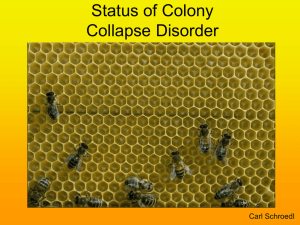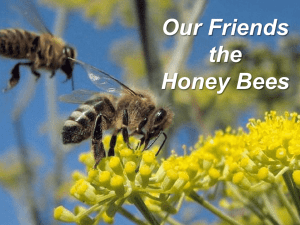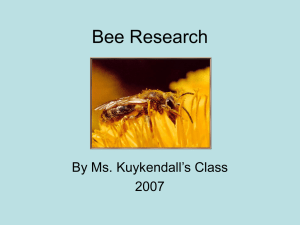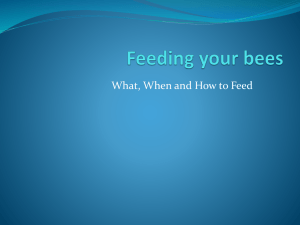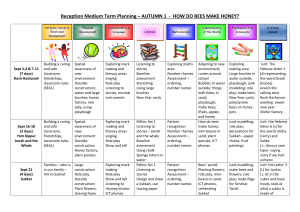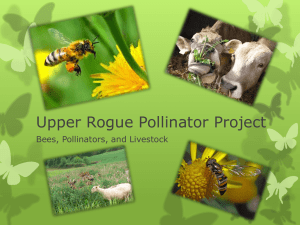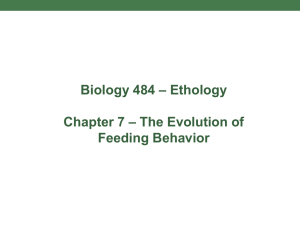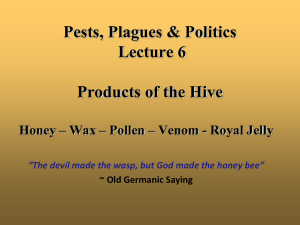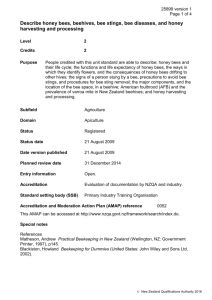Bee Assembly3 - Young Co
advertisement
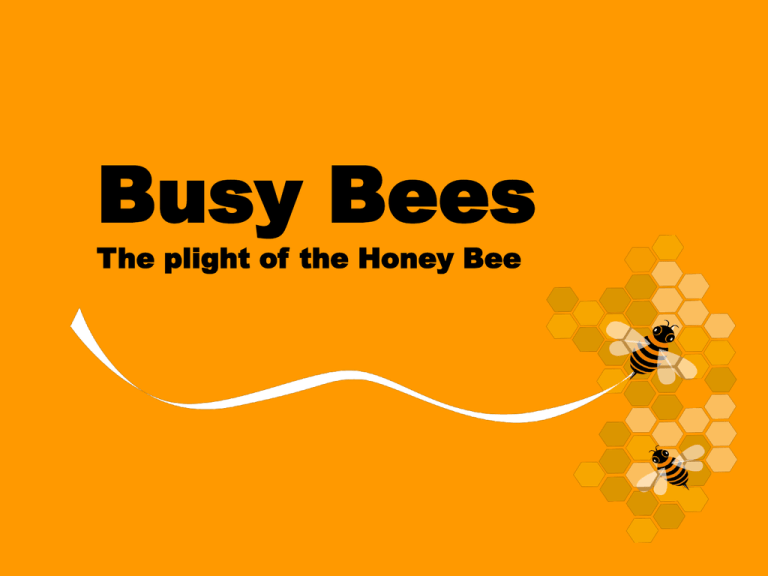
Busy Bees Busy bees The plight of the Honey Bee 1 Do you eat Honey? 2 The honey bee Wikimedia commons/Shyamal 3 Britain's honeybees are disappearing at an "alarming" rate. 4 'Colonies lost' The government says bee numbers have fallen by up to 15% in the last two years, in part because agricultural changes have reduced the availability of the wildflowers they depend on for food. Disease, climate change and pesticide use have also been blamed for the decline. 5 Wow! A single hive of fifty thousand honeybees pollinate half a million plants in one day. 6 One person’s view "If the bee disappeared off the surface of the globe then man would only a few years of life left. No more bees, no more pollination, no more plants, no more animals, no more man." 7 Bee gathering pollen It is an indication of how important honeybees are to the world's economy. It is estimated a third of the food we eat is pollinated by bees. 8 It is no wonder the dramatic decline in the population of these insects is worrying for everyone. Fewer bees means less pollination, which results in less honey and fewer plants. 9 Honey Bee Family A honey bee family has females, males, and a queen bee. Most of the 50,000 honey bees in a beehive are female worker bees (with a sting). There are a few hundred male drone bees (with no sting). 10 Waggle dance Honey bees communicate with each other about direction and distance from the hive to nectar sources through a special ‘dance language’, making it one of the most complex languages any insect or animal uses to communicate on earth. 11 Interesting And Amazing Information On Honey Bees Did you know? Bees can’t see red. To search for food, honey bees can fly up to 14 kilometres away from their nest. To look for flowers, they usually fly one or two miles. A hard-working bee makes round trips to forage for pollen or honey and can visit anything from 15002000 flowers a day. 12 Multi-tasking females A female honey bee lives for about 6 weeks, but it’s a full life – she’s always changing jobs. A worker bee is a cleaner, babysitter, builder, chef, queen-groomer, airconditioner, guard, undertaker, farmer, and scout. Her most exhausting job is visiting flowers to get food. A bee flies about 1000 km in her life, but it wears out her wings. Then she dies. 13 Humans are like bees Both live in communities both have organised work habits the young of both stay home then go into the world at about 21 (days or years) 14 Humans are not like bees We have the chance to change our role in life We have a choice about how we live our lives 15 BUT…….. Both humans and bees are at our best when we cooperate. 16 Do you eat Tomatoes? (ketchup, pizzas, baked beans, pasta sauce etc) Fruit? (strawberries, Jam, apple pie) Nuts? Chocolate? Coffee? 17 18 No Bees? It is estimated that costs of foods would double There seems to be only one other way of pollinating mass numbers of plants. It involves employing people to go round with feather dusters, brushing the insides of plants with pollen. They are already doing it in parts of China to pollinate pear trees in areas where the insects are extinct. 19 So….. What can you do to help our little stripey helpers? 20

